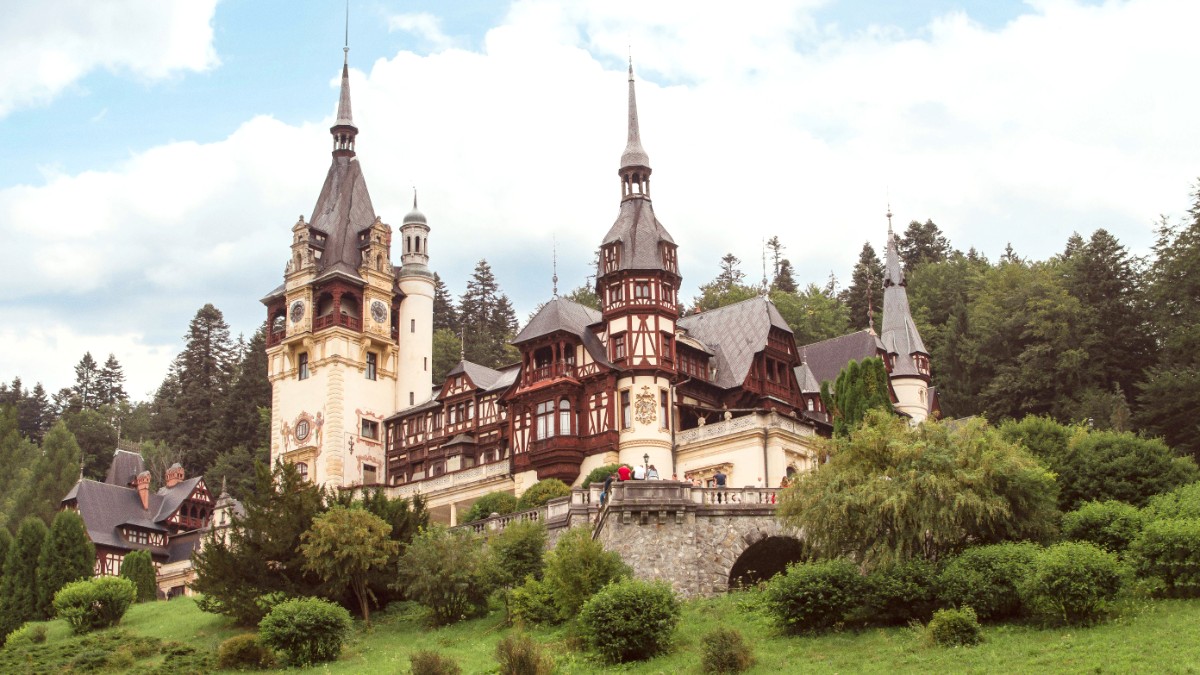
Transylvania, Romania
Romania has several major mobile providers, including Vodafone, Orange, Digi Mobil, and Telekom. Prepaid SIM cards are readily available for tourists, often bringing generous data allowances at low cost. You will need an Unlocked phone and your passport for registration. For flexible data plans, consider an ESIM from Airalo.
Free Wi-Fi is common in Sinaia. You will find it in most hotels, guesthouses, restaurants, cafes, and some public areas. Mobile data coverage is generally good throughout Sinaia and its surrounding areas in the mountains, though it can be spotty in very remote hiking locations. For portable Wi-Fi, explore options at Solis Wi-Fi.
Romanian is the official language. English is widely spoken in tourist areas including hotels, restaurants, and attractions. Younger generations are more likely to speak English. Outside these areas or with older individuals, English may be less common. For language learning, Rosetta Stone offers resources.
Learning a few basic Romanian phrases lessens communication hurdles. The Google Translate app serves very well; download the Romanian language pack for offline use. A physical Romanian phrasebook also helps with basic interactions.
Mobile data coverage in Sinaia is generally good. You find free Wi-Fi in hotels, guesthouses, restaurants, and cafes.
Generally open from 9:00 AM or 10:00 AM to 6:00 PM or 8:00 PM, Monday through Saturday. Many smaller shops might close on Sundays. Supermarkets often open earlier and close later.
Typically open for lunch around 11:00 AM or 12:00 PM and remain open until 10:00 PM or 11:00 PM for dinner service.
Opening hours for attractions like castles and museums vary seasonally. Many are closed on Mondays and Tuesdays. Always check the specific opening hours online.
Banks typically operate from 9:00 AM to 5:00 PM, Monday through Friday. Automated Teller Machines (ATMs) are widely available 24/7. You will find them in the town center, near banks, and within larger hotels.
Public holidays notably alter business hours, transportation schedules, and attraction opening times. Be aware of the following main public holidays in Romania.
Always check the operational status of cable cars before heading to the mountain, especially during adverse weather conditions.
A handshake is common for initial introductions. Among friends, a hug or a kiss on the cheek (between women, or a woman and a man) is common. Use formal greetings like "Bună ziua" (Good day) when addressing strangers or elders. Dress modestly when visiting churches or monasteries (like Sinaia Monastery), meaning shoulders and knees require covering.
Tipping 10% in restaurants for good service is common. For detailed information on dining customs and tipping expectations in Romania, refer to relevant sections in this guide.
Photography is generally allowed in public spaces. Always ask for permission before photographing people, especially in rural areas or if focusing on individuals. Inside churches or museums, check for "no photography" signs. Sometimes a fee applies for photography, like inside Peleș Castle. Respect privacy.
Avoid discussing politics or sensitive historical events unless the conversation starts naturally and you know your audience well. Respect for elders stands important in Romanian society.
A modest dress code when visiting religious sites shows respect and good cultural engagement with local customs.
For travelers with mobility challenges or other special needs, awareness of Sinaia's accessibility infrastructure aids trip planning.
Sinaia's mountainous terrain and older infrastructure pose challenges for mobility. Many paths, especially around historical sites, involve cobblestones or stairs. Older buildings may lack ramps or elevators.
Peleș Castle has many stairs and limits accessibility. Access to certain areas might not suit wheelchair users. Sinaia Monastery grounds have some uneven paths. Cable cars are generally accessible for wheelchairs. Local buses may not be fully wheelchair accessible. Taxis and ride-sharing services (Bolt) offer better options for private transport.
Specialized services specifically catering to tourists with visual or hearing impairments are limited in Sinaia. Larger cities in Romania may offer more resources for such needs.
It is best to contact specific hotels or attractions directly regarding their accessibility features and any assistance they can provide. For general information on accessible travel in Romania, look for local disability rights organizations online.
Planning with flexibility and direct communication with venues lessens unexpected challenges for travelers with specific needs.